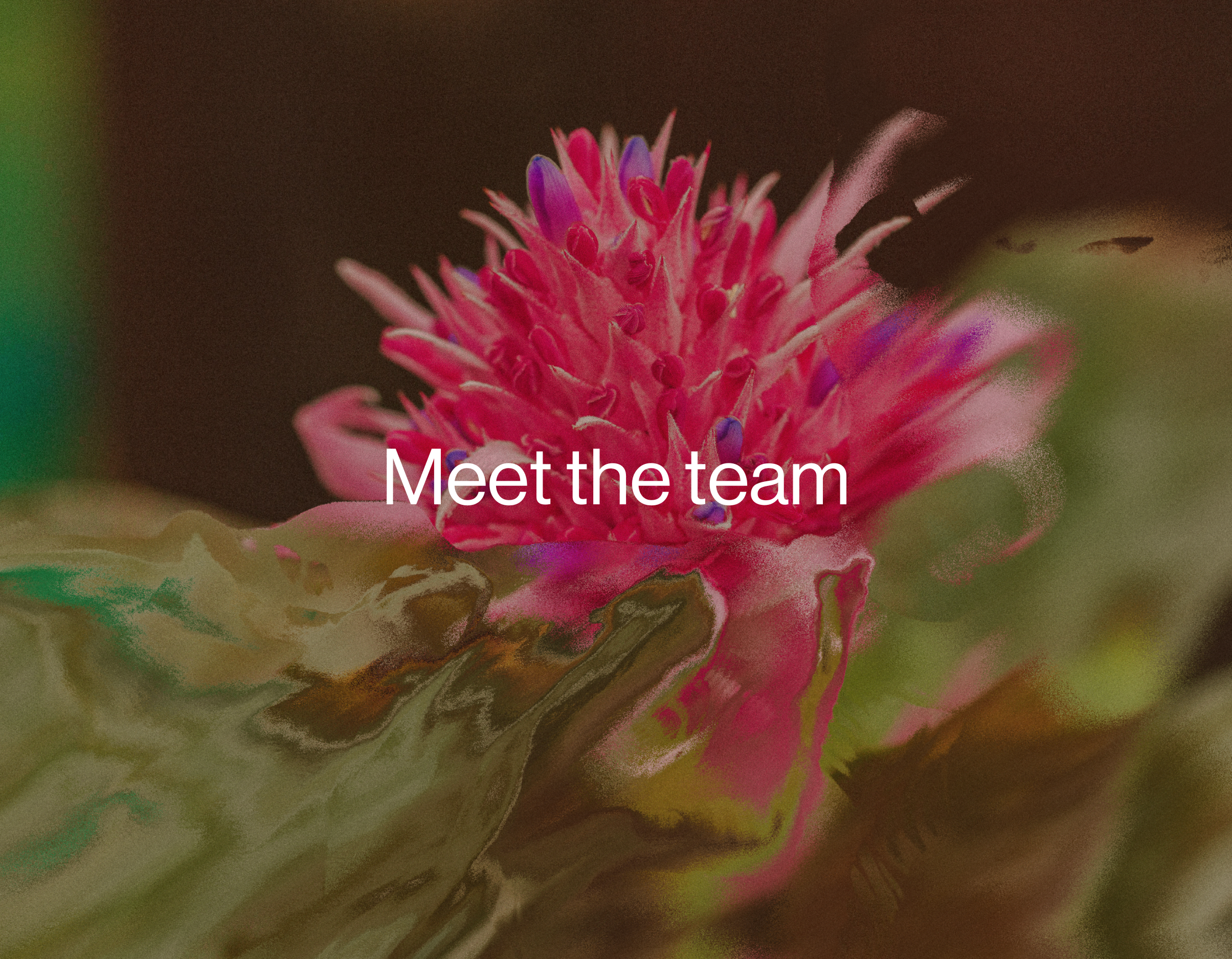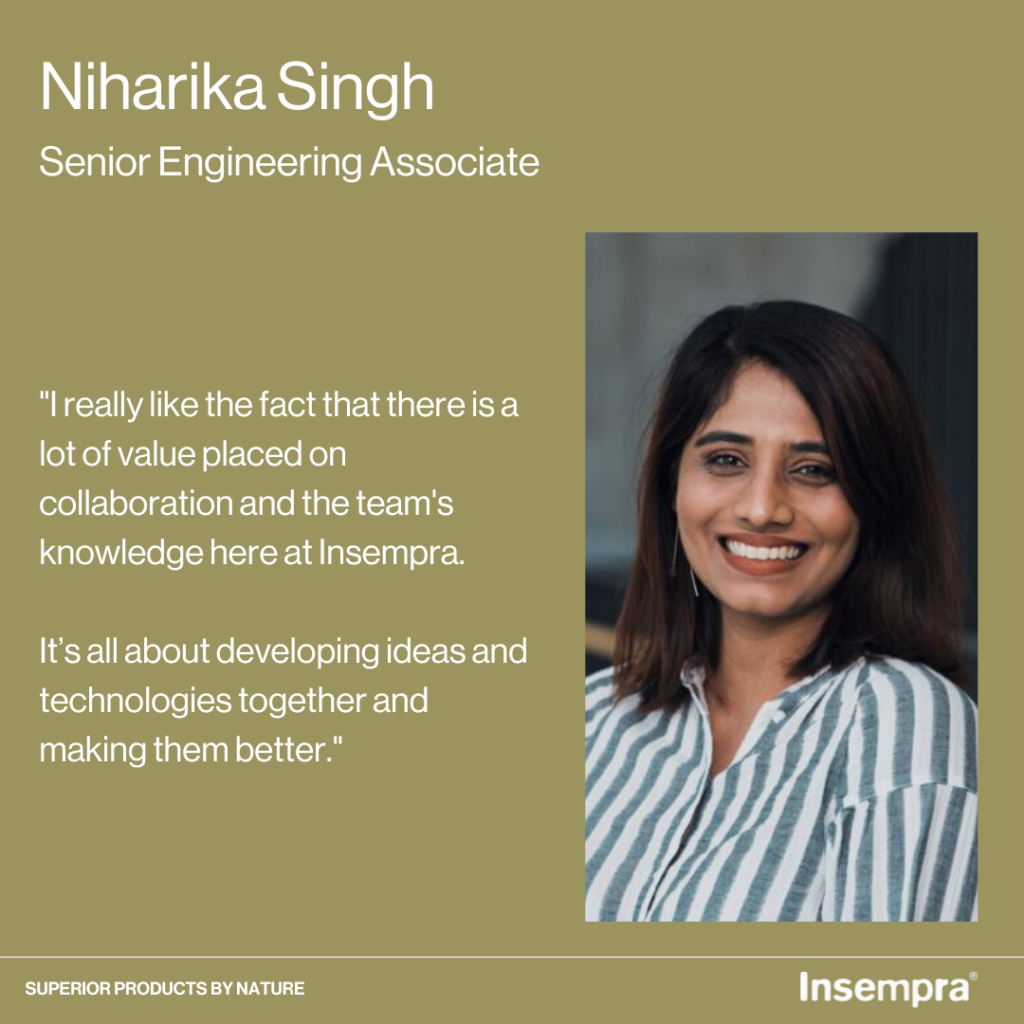

Hi Niharika, tell us a little about your background
I knew very early on that I was interested in biology and actually decided that I wanted to get into biotech when I was just 14 years old. I did my undergraduate in biotechnology at Manipal University in India and my master’s at Lund University, Sweden. My master’s thesis was on developing lipids from oleaginous yeast, which was the perfect fit for starting my career at Insempra.

What is your role at Insempra?
I am a senior bioprocess engineering associate and I focus mostly on the upstream part of our product lifecycle – extracting and analyzing the data from our fermentation processes. Mostly, I spend my time screening oleaginous yeast and running fermentations to identify the best strains for different market applications, focusing on high-yield and quality output.
What’s your favorite part of your work?
In general, I really enjoy working towards something that has the potential to benefit the environment by helping to save on land use for example.
In academia most of the research is based on achieving a very specific goal – here at Insempra we can be really experimental and innovative in our work to ensure we find the right strains for different applications. This freedom to really focus on finding the best solutions for high-quality products is extremely motivating.
Which company values resonate with you the most?
I really like the fact that there is a lot of value placed on collaboration and the team’s knowledge here at Insempra – it’s about developing ideas and technologies together and making them better.
What’s unique about working for our organization?
The people I work with at Insempra are very smart and I feel like there is a lot that we can learn from each other, which makes for a highly innovative and inspiring working environment.
What are you working on right now?
Currently I’m working on fermentations with diverse yeast strains and experimenting with sustainable and second-generation feedstocks so we can implement more sustainable and cost-efficient processes.
Thank you Niharika!